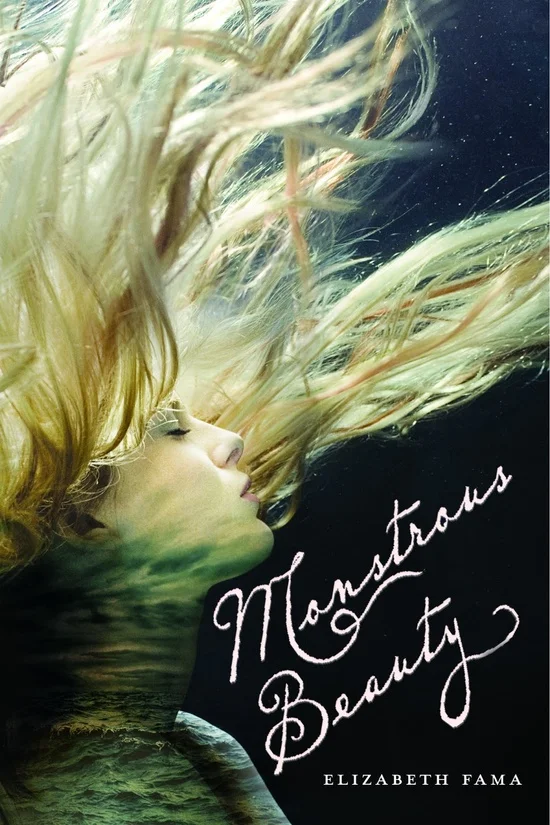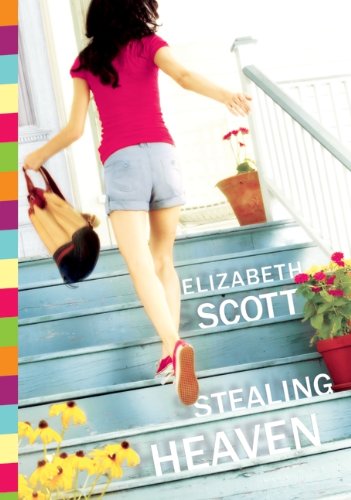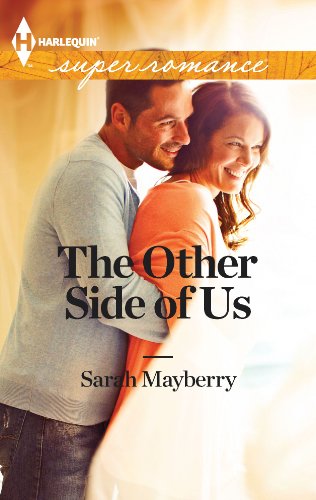Links + Things: Critiquing "Oz," Network TV's Vision Problem, How the Quiet Car Explains the World, Feminist/UnFeminist, Strong Female Characters + More
How is it Thursday already? This has been quite a week, particularly since--at long last--we launched the Clear Eyes, Full Shelves podcast. Give it a listen--we hope you enjoy the blend of discussion, humor and hijinks.
This has been a bit of a slow week, bookish news-wise, but there's still loads of interestingness in the world. Check out a few of the tidbits I've gathered and don't forget to scroll to the end for book cover news and cheap book deals to feed your reading habit.
This Week's Video of Awesome
You Tube user dair to love created this fan-freaking-fastic tribute to Friday Night Lights. It got kind of dusty in here when I watched this the first time. Ahem.
Interestingness
No doubt the focus group responsible for “Great and Powerful” convinced themselves that female protagonists weren’t marketable (odd coming from the studio of Disney Princesses), and that a pouty, doubting hero would draw in a wider range of moviegoers. It was probably believed no one would ever see an Oz film unless it directly tied into the version they already knew and loved, and that trying to draw on original Oz tales would be too confusing and difficult. Audiences can follow along with Marvel and Tolkien, but the origin of Ozma would undoubtedly be too complicated. Why bring in Betsy and her mule, when we can have a Hollywood hunk on the poster, and witchy cleavage at the denouement?
Over at film.com, Elizabeth Rappe dissects Hollywood's prequel to The Wizard of Oz, Oz the Great and Powerful. She points out that in the Oz novels, L. Frank Baum created stories with strong women as the leads, but Hollywood's interpretation reflects none of that. The new film falls back into the gender stereotypes present in nearly every blockbuster flick. It's been a long, long time since I read a number of the original Oz novels, and I'm interested in revisiting them now .
The networks need their own version of Steve Jobs.
They need their iPod moment. They need their iTunes moment. They need their iPhone and iPad moments, too. Hell, at this point they just need their colored iMac moment.
They need someone to step forward and say, “Few industries are as tied to the old ways of doing things as the television industry, and the old ways don’t work anymore.” They need someone who will change the culture, find success and have his or her ideas stolen and copied immediately -- a concept of business that everyone in television is overly familiar with.
But who is this person? Where is this person? And how soon can he or she get here?
The Hollywood Reporter's Tim Goodman (who's one of my favorite TV twitterers) dismantles the problem network television's facing with it's absolutely profound lack of vision when it comes to programming and the networks' refusal to shift in the face of an already-changed media landscape. This is great stuff, and it's absolutely spot on. More vision, please.
I think what we have here is a working definition of an asshole -- a person who demands that all social interaction happen on their terms. Assholes fill our various worlds. But the banhammer only works in one of them.
Ta-Nehisi Coates is one of my favorite columnists/commentators. He never shies away from difficult discussion and is incredibly sharp with his insights about pretty much every topic. This week, he astutely observes that the Amtrak "quiet car" explains the crux of what's wrong with our world. (This link's via my charming and adorable husband.)
For me, feminism means that men’s decisions don’t determine my choices. I don’t feel feminist by choosing to do the opposite of what men have done for centuries, because that’s letting men’s actions decide *my* choice. You may not feel the same. That doesn’t make your thoughts un-feminist. I don’t get to decide that. Neither does she. This may be semantics, but words are damn important.
This week I have been very, very upset about an incredibly offensive, judgmental and disturbing piece a prominent feminist commentator wrote, declaring that women who use their husbands' last names for any reason are "unfeminist" (I'm not going to directly link to it, but you can find it linked here). As someone who invested years of education in the field of Women's Studies and into feminist inquiry, there's not much that gets my hackles up more than this growing trend in which self-identified feminists seem to believe that they are so privileged that they are entitled to determine whether the rest of meet their standards for feminism. For me, it's "unfeminist" to invalidate women's truth in order to advance to specific interpretation of feminism.
And, I'll leave this topic with one more quotation from Dahl's analysis.
God, it’s so damn weird to me. I don’t want men telling me what’s “feminine,” but I’m supposed to be okay with women telling me what’s “feminist?” Oh, shit, I really don’t think so.
I think you strive to write female characters as great as you would male characters. You make them as complex. As heroic. As flawed. As compelling. As powerful or as weak.
You do not ignore that they are girls or women.
Of course they can be flawed. They should be. Because great characters are.
But their flaws and complexities are not because they are women.
(Is “oh, it’s because she’s a woman” ever a good excuse to include any character aspect?)
You needn’t elevate them onto a pedestal.
You needn’t drop them into the pit.
You just need to make sure they and their experiences are represented. And fully-formed — not some caricature, not some cardboard cut-out, not some sex object or silly goose.
Women in this world, the real one, can do anything.
Make sure the women who populate your fictional worlds have that same opportunity.
Chuck Wendig takes on the notion of "strong female characters" and his perspective as a male writer who's written a female character often lauded as "strong" (Laura highly recommended Blackbirds last year) is interesting. I always struggle with the notion of "strong" as a character descriptor, and I don't really know why... Perhaps it's because "strength" is such a hard-to-pinpoint concept? This is a topic I need to mull over some more (maybe a good podcast subject?)
But what has happened since tragedy struck this couple flies in the face of anything that would lessen the humanity of electronic connections.
"This is not an isolating thing at all," Zuker said. "You feel part of a community. And whether that spills over into real life or not, I still think there's something real about that interaction."
Crane said she can see the risk of people who become consumed by social media connections and ignore the real people in their lives. But to write off the experiences online is folly.
"I didn't know Matthew or Danielle before Twitter," she said. "But we all sort of became this community of people who like to laugh and like to make other people laugh, and with that came real connections.
"Zuker added: "We're willing to accept the concept that cyberbullying is real, and it is. But if you can accept the idea that the negative is real, then you have to accept the idea that the positive is real. If strangers can hurt you, they can be friends as well."
Ever had someone tell you that your online friends aren't "real" friends? I sure have. This is a touching article about a couple whose Twitter friends rallied to help them after the wife suffered a brain hemorrhage.
Further Reading
- While I didn't know her, a lot of folks I know in Portland knew Bridget Zinn and the support her book (she passed away prior to its publication) is quite touching. This week, Publishers Weekly featured the outpouring of support for Bridget's book, Poison.
- I meant to share this one last week, but I missed it in my Links + Things Evernote file: I love this art project which turned Ray Bradbury's Farenheit 451 into a matchbox, striker and match.
- I want to hate this, but I don't: Epic Reads/Story Crush rounds up prom dresses matched to YA book covers.
- YA Highway showcased the evolution of a book cover design--it's so fascinating!
- Read, Write, Web talks about the pitfalls of tying one's Netflix account to Facebook.
- Thanks to Catie of The Readventurer fame for sharing this six word essay from NPR's The Race Card Project with us--it's very relavent to our discussion on the podcast this week.
- This is a couple weeks old, but VQR breaks down the numbers behind format differences--it's such fascinating information.
- How about a driving map of FNL locations?
Cover Art News
I added Viral Nation to my Goodreads to-read list based on the cover art alone. A girl and her dog and a broken down car--what's not to love? And! The girl is wearing normal clothing! Hell to the yeah!
I've not dug any of the iterations of the Monstrous Beauty covers, and I think I've finally figured out why: it's the title type treatment. It simply looks old fashioned, and not in a classic or retro way,
I love Jesse Peterson's Living with the Dead series, and I'm so happy Pocket Star is publishing a new book (or series?) from her. I didn't like this cover at first, but the more I look at it, the more I appreciate it's weird, retro look.
Books That Are Cheap (Right Now)
I've got a hodge-podge of book bargains for you this week--the first four are digital, the others are paper books. I hope this helps you find a good--and cheap--read!
- I think Elizabeth Scott is an incredibly underrated author--she rights about teens in a realistic, emotionally authentic way. Stealing Heaven is probably number three in my favorite Elizabeth Scott books, and is only $1.99 on both Kindle and Nook right now. I think this one will appeal to fans of the "New Adult" thing, in particular.
- I haven't read Stuart Neville's The Ghosts of Belfast, but I have heard nothing but glowing praise for it and will be picking it up for the strange price of $2.09 on Kindle and the less weird price of $2.99 for Nook. This is Irish noir, so it's definitely gritty and intense.
- Several people whose taste I trust have told me that Molly Ringwald's novel, When it Happens to You, is quite good. It's $2.99 for both Kindle and Nook.
- Matthew Quick's Sorta Like a Rock Star is bargain priced on Amazon for $6.80 for the hardcover, which is cheaper than the paperback or ebook.
- A number of folks have recommended Jennifer Crusie to me, including Welcome to Temptation. I'm going to have to try out one of her books soon and $6 for the paperback isn't too shabby.
- And, finally... FREE is a very good price. Rebeca aka Renegade has very much enjoyed Sarah Mayberry's books (and I liked Within Reach quite a bit) and her newest is a free preorder at Amazon.

Review: Star Crossed by Jennifer Echols

















